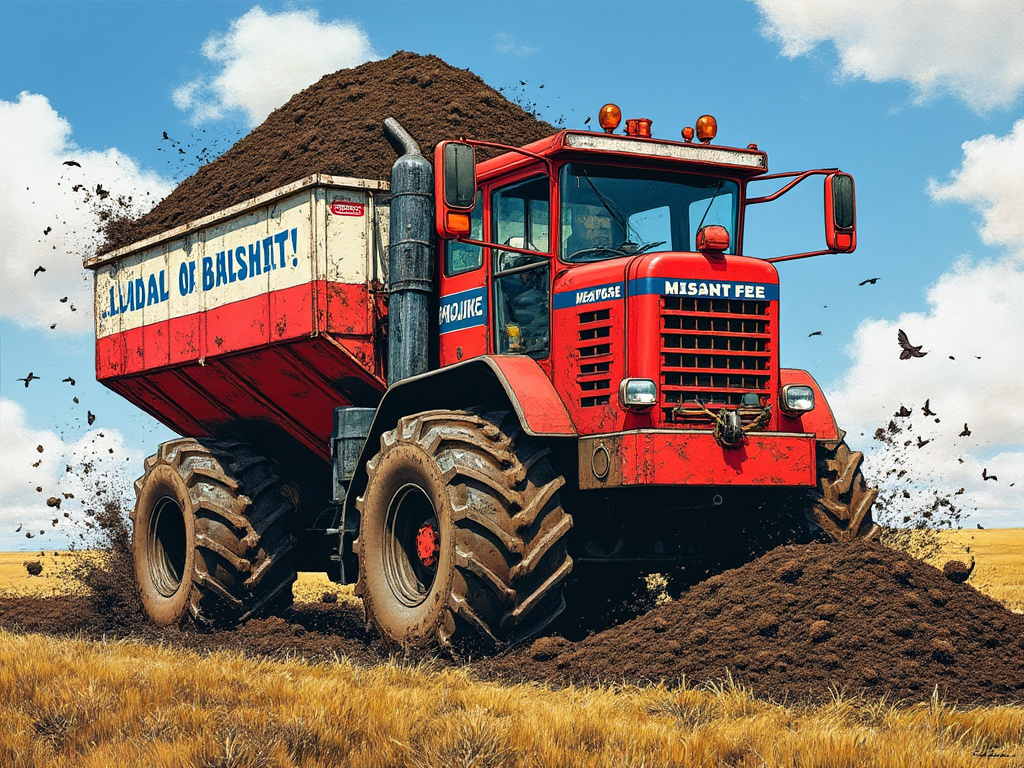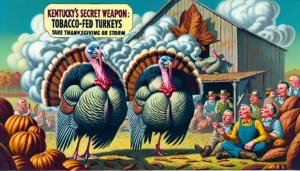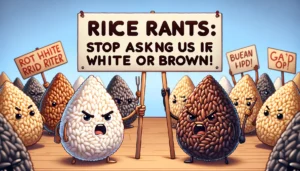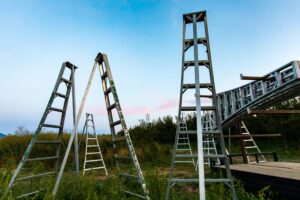
FarmerCowboy.com Load of Bull Government Bullshit 33.jpg
1. “Free Fertilizer” Will Boost Your Crops
You know what’s great about “free” fertilizer from the government? It’s kind of like being handed a cow patty and being told it’s a gourmet meal. Sure, it’s technically free, but the cost is buried in the fine print—along with your sanity. You’ll spend more time figuring out why this “free” fertilizer comes with a 50-page instruction manual than actually spreading it. And let’s not forget, if it’s from the government, there’s a good chance it’s about as potent as fairy dust. But hey, at least you’ll have a nice stack of paperwork to compost!
2. Crop Insurance Will Cover All Your Losses
Crop insurance is like buying a warranty for your toaster that only covers alien abductions and spontaneous combustion. You know, the stuff that never happens. When disaster strikes and your crops are flattened by a freak hailstorm, crop insurance is there to say, “Sorry, we don’t cover Acts of God… or Acts of Nature… or Acts of Anything, really.” It’s like trying to shield your crops with a raincoat in a hurricane. You’ll be left standing there with a soggy policy and a farm that looks like it was visited by a very angry Mother Nature.
3. Subsidies for Organic Farming Are Easy to Get
Subsidies for organic farming are like those mythical unicorns—you’ve heard they exist, but good luck finding one. The government makes it sound so simple: “Just fill out a few forms and boom, you’re funded!” What they don’t tell you is that these forms require a Ph.D. in Bureaucratic Nonsense, and even then, you’ll still need to sacrifice a goat under a full moon to actually get approved. And when you finally get the subsidy? It’s like being handed a 10-dollar bill after you’ve already spent a hundred trying to make it happen. Organic farming? More like organically broke.
4. Tax Breaks for Green Energy Will Save You Money
Tax breaks for green energy are sold like they’re going to turn your farm into a money-saving utopia. But here’s the reality: You’ll be paying for that solar panel system until your great-grandkids are planting crops. The government says, “You’ll save money in the long run!” Yeah, if the long run is the distance to Mars. It’s like ordering the special at a restaurant because it sounds cheap, only to find out the “special” is just the bill. Your wallet goes green too—green with envy at everyone else who skipped this so-called “deal.”
5. Sustainable Agriculture Grants Are a Sure Thing
Sustainable agriculture grants are like being told you’ve won the lottery, but only if you can solve a Rubik’s Cube while blindfolded. The government dangles these grants in front of you like a carrot, but every time you reach for it, they move the goalposts. Sure, you’ll get the grant—if you can navigate the maze of forms, interviews, and paperwork that would make a tax attorney cry. And when you do get it, it feels less like a reward and more like the consolation prize at a rigged carnival game. Sustainable? Maybe. Frustrating? Definitely.
6. We’re Cutting Regulations to Make Your Life Easier
Regulation relief from the government is like being told you’re getting a haircut from Edward Scissorhands. Sure, they’re cutting something, but it’s probably not what you wanted. They say they’re making things simpler, but all they’re really doing is switching up the hoops you have to jump through. It’s like swapping one maze for another—congratulations, you’ve gone from confusing to baffling! And just when you think you’ve figured out the new rules, they change them again. So, yes, they’re cutting regulations… but they’re also cutting your patience down to the quick.
7. Emergency Assistance Will Be There When You Need It
Government emergency assistance is like ordering a pizza and being told it’ll arrive in 5 to 7 business days. By the time help shows up, your farm’s either under water or on fire—maybe both. It’s like having a fire extinguisher that only works on the second Tuesday of every third month. The best part? When you finally get through all the red tape, they send you a check so small it won’t even cover your emotional damages. You might as well start a GoFundMe page or rely on that one neighbor who still thinks barter is a viable economic system.
8. High-Speed Internet is Coming to Rural Areas
High-speed internet in rural areas is like finding a unicorn playing poker with Bigfoot and Elvis—it’s a great story, but don’t hold your breath. The government says, “It’s coming!” but what actually shows up is slower than molasses in January. You’ll spend so much time buffering that you’ll start thinking your old dial-up connection was a speed demon. Meanwhile, your city cousins are streaming movies and ordering groceries online while you’re still waiting for the email you sent last week to load. High-speed? More like high-wait, low-expectations.
9. Your Water Rights Will Be Protected
Water rights protection from the government is like being given a life raft made out of paper. You’re promised that your rights are secure, but when the drought hits, you’re fighting for every drop like it’s liquid gold. It’s like being told you’re the king of a desert island with no water in sight. The best part? The paperwork to protect those rights is longer than the list of things you can’t do with your water. So, good luck trying to irrigate your crops when you’re busy filling out forms to prove you’re not draining the Great Lakes.
10. Affordable Healthcare for Farmers Is a Priority
Affordable healthcare for farmers? Sure, and pigs can fly. The government’s idea of affordable healthcare is like offering you a discount on a Lamborghini—still way out of your budget. You might as well have your vet do a check-up while they’re at the farm; at least they don’t charge by the organ. And when you do manage to scrape together the money for a doctor’s visit, you’ll spend more time figuring out the insurance paperwork than actually getting treated. By the time you’re done, you’ll need a doctor just to recover from the stress.
11. Market Access Will Be Expanded for Your Products
Market access sounds like the golden ticket for your farm’s success, but in reality, it’s more like being invited to a potluck where everyone’s already eaten. The government says, “We’ll open new markets!” but all you find is a flea market in the middle of nowhere. Your produce might make it to the big city, but only if you hitch a ride with a passing UFO. And when you finally do get your products out there, you realize the “market” is just a bunch of empty promises with price tags that make you wonder if you should have just stayed home.
12. Land Conservation Incentives Are Worthwhile
Land conservation incentives are like being offered a gold star for effort, but only if you can find the sticker sheet. The government promises rewards for conserving your land, but what you end up with is a medal made of paperwork. You’ll spend more time filling out forms than actually doing anything to preserve the land. By the time you’re done, you’ll have conserved your sanity about as well as a sieve conserves water. Sure, the incentives are out there, but getting them is like chasing a mirage in the desert—it’s exhausting, and you never quite reach it.
13. Infrastructure Improvements Are on the Way
Infrastructure improvements? More like infrastructure “maybe one day.” The government says they’re fixing rural roads, but what they really mean is they’re considering talking about possibly fixing them—someday. In the meantime, your tractor’s taking a beating on potholes big enough to swallow a barn. It’s like being promised a brand-new highway and getting a dirt path with a scenic view of disappointment. The only thing that improves is your ability to dodge craters on your morning commute. So, keep dreaming about those smooth roads; just don’t hold your breath waiting for them.
14. Farm-to-Table Programs Will Make You Rich
Farm-to-table programs are like a diet plan that promises you’ll lose weight while eating cake—sounds great, but the reality is a little less sweet. The government says these programs will connect your farm with eager customers, but somehow, your produce gets lost in transit. By the time it makes it to the table, it’s more like farm-to-trash. And the profits? Let’s just say you’ll be farming goodwill instead of dollars. So, unless you’re growing imaginary crops for imaginary customers, don’t expect these programs to make you rich anytime soon.
15. Education Grants Will Secure Your Future
Education grants for ag students are like promises from a used car salesman—shiny on the outside, but when you dig a little deeper, you find the wheels have fallen off. The government talks about securing your future, but what you really get is a degree in Disappointment 101. By the time you graduate, you’ll be better at navigating debt than growing crops. And those high-paying jobs they promise? They’re about as real as Bigfoot—lots of talk, no sightings. So, while your diploma looks good on the wall, don’t be surprised if you end up back on the farm, plowing your own furrow of regret.
Originally Published at FarmerCowboy.com
2024-08-21 06:32:27
Karl Hoffman is a distinguished agriculturalist with over four decades of experience in sustainable farming practices. He holds a Ph.D. in Agronomy from Cornell University and has made significant contributions as a professor at Iowa State University. Hoffman’s groundbreaking research on integrated pest management and soil health has revolutionized modern agriculture. As a respected farm journalist, his column “Field Notes with Karl Hoffman” and his blog “The Modern Farmer” provide insightful, practical advice to a global audience. Hoffman’s work with the USDA and the United Nations FAO has enhanced food security worldwide. His awards include the USDA’s Distinguished Service Award and the World Food Prize, reflecting his profound impact on agriculture and sustainability.



